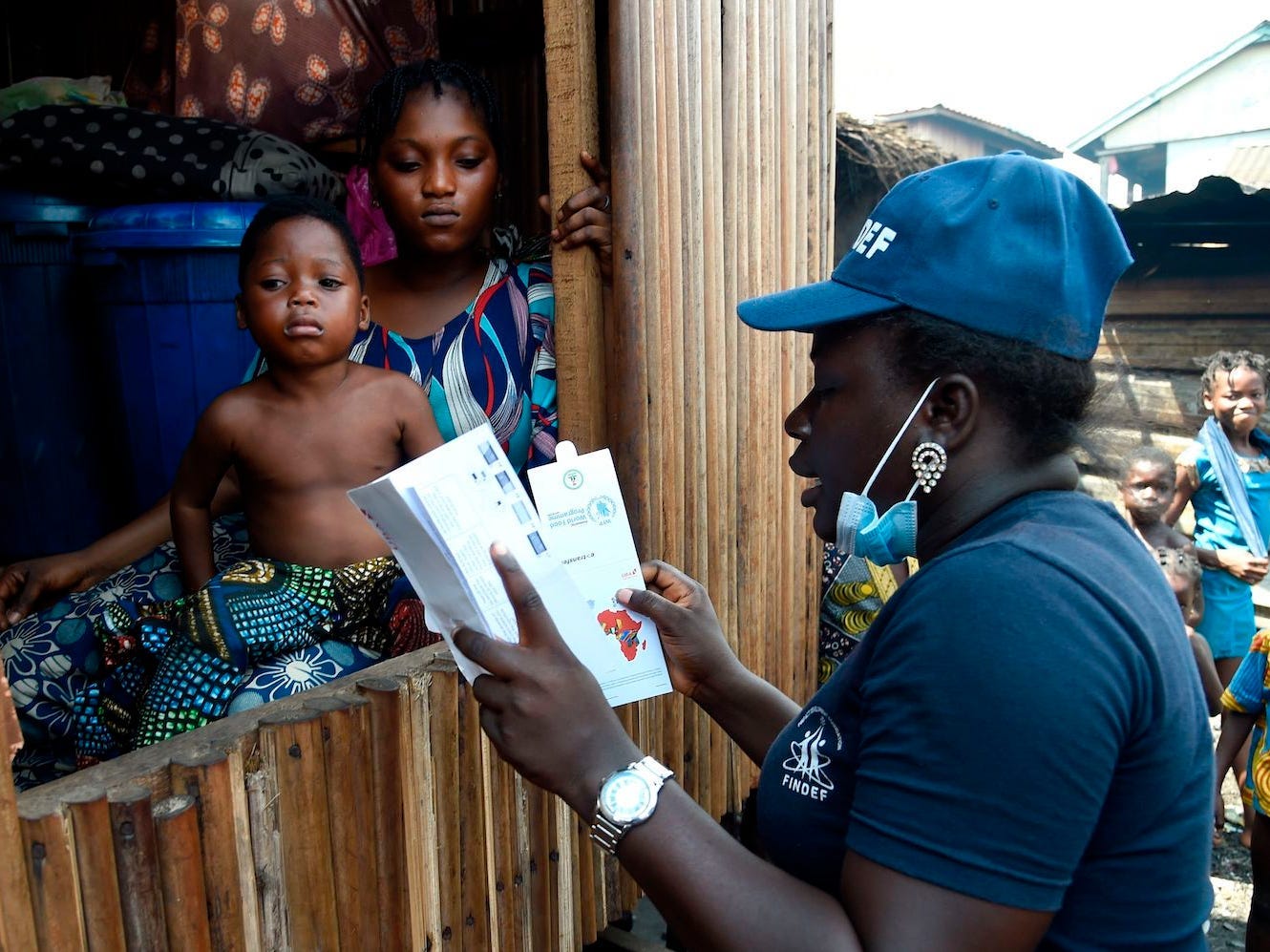
Pius Utomi Ekpei/AFP via Getty Images
- The world was on “on the brink of catastrophic moral failure,’ over vaccine distribution, the head of the World Health Organization said Monday.
- Dr. Tedros Adhanom Ghebreyesus said it was not right that younger, healthier adults in rich countries are vaccinated before health workers and older people in poorer countries.
- “A me-first approach leaves the world’s poorest and most vulnerable people at risk, it’s also self-defeating,” Ghebreyesus said.
- Visit Business Insider’s homepage for more stories.
The world is “on the brink of catastrophic moral failure” by failing to give vaccines to poorer countries, the head of the World Health Organization said Monday.
“It is not right that younger, healthier adults in rich countries are vaccinated before health workers and older people in poorer countries,” Dr. Tedros Adhanom Ghebreyesus, the director-general at the WHO, said during an executive board session.
Governments naturally want to prioritize their own health workers and older people – but they need to come together to prioritize those most at risk of severe diseases and death around the world, he said.
“More than 39 million doses of vaccine have now been administered in at least 49 higher-income countries, but just 25 doses have been given in one lowest-income country,” Tedros said.
A “me-first approach” was “self-defeating”, ultimately prolonging the pandemic, as well as the restrictions needed to contain it and both the human and economic suffering, he said.
Research from Duke University's Global Health Innovation Center predicted that it could take years to roll out vaccines in poorer countries due to vaccine cost and availability, as well as a lack of infrastructure to transport, store, and distribute the shots.
Tedros said that countries and companies had promised equitable access by signing up to COVAX, a voluntary scheme to ensure vaccine distribution worldwide launched. COVAX was launched by the WHO, Gavi vaccine alliance, and the Coalition for Epidemic Preparedness Innovations (CEPI).
But certain countries and companies have gone around COVAX, he said, putting themselves first and in doing so driving up prices.
Manufacturers had also prioritized regulatory approval in rich countries where profits are highest, he added.
He did not name any specific countries or companies.
He urged countries that had circumnavigated COVAX - and that have control of supply - to be transparent about their contracts, and share any excess vaccines.
"My challenge to all member states is to ensure that by [...] April 7, COVID-19 vaccines are being administered in every country, as a symbol of hope for overcoming both the pandemic and the inequalities that lie at the root of so many global health challenges," he said.
